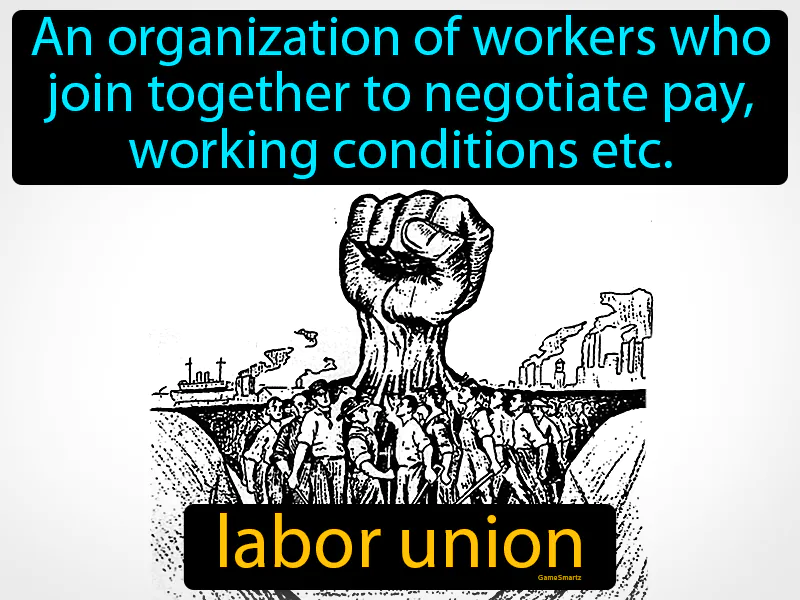Labor Union
Labor Union: Easy to understand
During the Industrial Revolution (1750-1850), labor unions emerged as workers faced harsh conditions, long hours, and low pay in factories. These unions formed to collectively bargain for better wages, safer environments, and reasonable working hours, providing a voice for workers who individually had little power. This was important because it led to significant improvements in labor laws and workers' rights, laying the foundation for modern labor standards. Today, labor unions continue to play a crucial role by ensuring fair treatment and negotiating benefits, such as health insurance and retirement plans, for workers. For example, teachers' unions often negotiate for better classroom resources and pay, which directly impacts the quality of education students receive.

Practice Version

Labor Union: An organization of workers who join together to negotiate pay, working conditions, etc., is known as a labor union. In history, labor unions are groups that workers formed to improve their jobs and protect their rights.